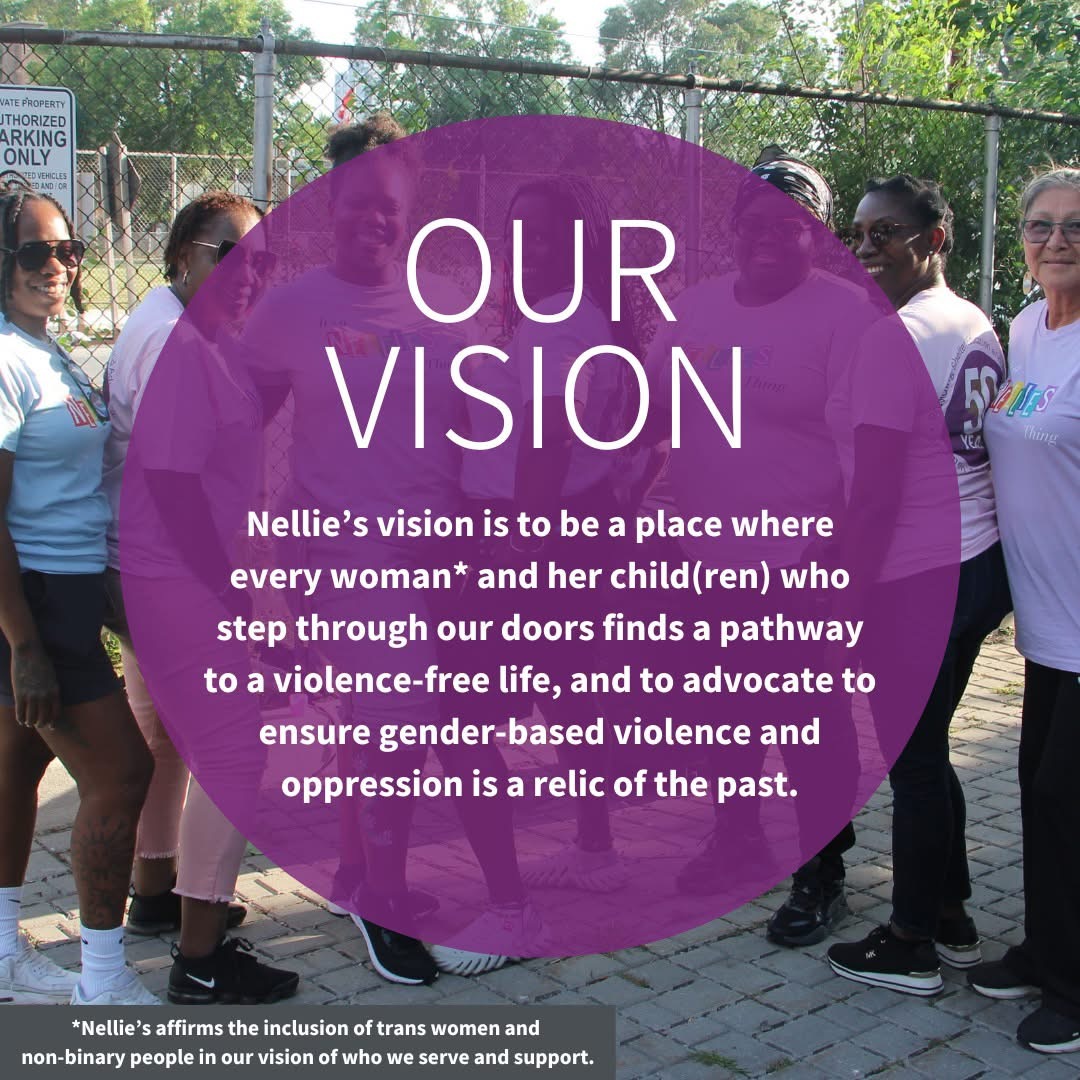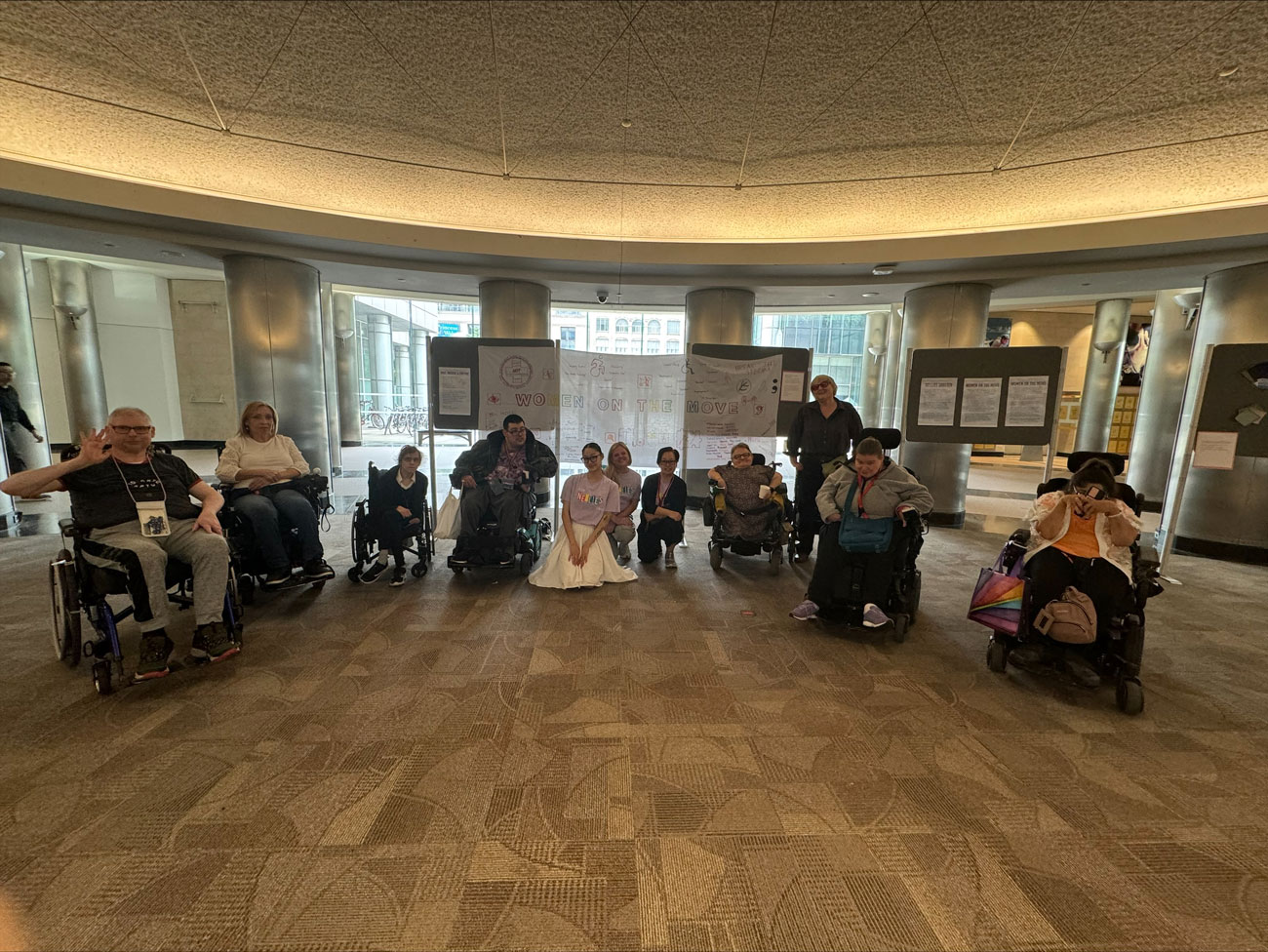Nellie’s: Pioneering Accessibility and Safety for Women
In 1973, a group of female activists in Toronto, Ontario, observed a glaring disparity: there were over 400 shelter beds for men but only 40 for women. Determined to address this inequity, they established Nellie’s, one of Toronto’s first women’s shelters. Nellie’s opened its doors with just 16 beds spread across nine bedrooms, and despite the cramped space, it became a refuge for women fleeing domestic violence, trauma, and homelessness.
Over 50 years on, the shelter’s mission remains as committed as when it first opened, with more than 15,000 women and children having since stayed. With the achievement of the Rick Hansen Foundation Accessibility Certification (RHFAC) Gold for reaching a high level of accessibility in its new location, Nellie’s continues to break barriers and build hope for so many.
Breaking the Cycle
For decades, Nellie’s operated out of a historic 8,900-square-foot building that, while rich in character, presented significant challenges. Over time, the space became increasingly inadequate as the shelter expanded its capacity to 36 beds without adding amenities.
“There were only five toilets, four showers, and one bathtub for all the residents,” said Jiin Yiong, Nellie’s Program Director. She added that the children’s playroom was relegated to the basement, which was inaccessible to many, and the shelter could accommodate only one accessible bed.
“We made the most of every inch, but the demands and barriers women face today are so different from 50 years ago. It became clear we needed a change,” said Jiin. In the early days, she added, “It was very informal. Women could sit on the sofa with a coffee and talk. However, as the issues women faced grew more complex, so did the barriers they encountered. We had to adapt.”
Jiin has dedicated her career to the gender-based violence sector since 1998 and rejoined Nellie’s in 2021. Having previously worked at the shelter as a frontline counsellor and transitional support worker, she returned to increase safety, equity, and empowerment for women. Under her guidance and with the dedicated shelter staff team, Nellie’s is continuing to embrace a holistic approach to breaking the cycles of violence and homelessness.
“We’re not just providing a roof over their heads,” said Jinn. “We help women navigate legal systems, immigration services, health care, and more. Our programs help them understand what they can do to feel present and reclaim their sense of self and dignity. For women who’ve been abused, that’s a huge part of the healing process.”
A New Chapter
On November 30, 2021, Nellie’s celebrated the opening of its new facility. Situated in another historic building combined with a modern annex, the shelter offers 22 private bedrooms, most with its own bathroom. Four of these are barrier-free, ensuring inclusivity for women with disabilities. There are gender-neutral staff washrooms, age-specific safe spaces, and even a pet care area.
“This space allows us to truly meet the diverse needs of the women we serve,” said Jinn. “Families can now have adjoining rooms with shared washrooms, offering privacy and dignity that weren’t possible before.”
The new building also includes an industrial kitchen and several kitchenettes. The building was built with accessibility in mind, so in addition to an accessible entrance, wide hallways, and an elevator, Nellie’s achieved RHFAC Gold by going above and beyond by installing a hearing loop at its front desk and visual fire alarms.
Achieving RHFAC Gold was a milestone for Nellie’s, but accessibility is not just about infrastructure. It’s also about creating systemic change. Nellie’s Social Justice and Accessibility Committee meets regularly to discuss and develop strategies in how to influence system change for women living with disabilities through a social justice lens. Women On the Move is a community program where women with disabilities meet regularly to share resources and break social isolation.
For Jiin, who learned about RHFAC by attending the Rick Hansen Foundation’s 2024 Accessibility Professional Network conference in March, this milestone is personal. “This work is about breaking cycles of violence and creating possibilities,” she said. “We’re showing that accessibility isn’t just a feature of a building; it’s a feature of hope.”

The Intersection of Disability and Violence
Accessibility is a lifeline for many women with disabilities who are disproportionately affected by violence—nearly half of all violent crimes against women in Canada are committed against those with disabilities. These women are twice as likely to be victims of sexual assault, emotional abuse, or financial control.
Stats show that more than half of women with disabilities in Canada (55%) reported some form of intimate partner violence in their lifetime compared to 37% of women without disabilities. Psychological abuse is the most commonly reported type of violence for women with disabilities (53%), followed by physical assault (32%) and sexual assault (18%). [Source: Statistics Canada. (2021, June 29). “A profile of Canadian families and households: Families, households and marital status.”]
The statistics are harrowing and highlight the urgency of Nellie’s mission. “We know that women with disabilities face higher rates of victimization and unique barriers to escaping violence,” said Jiin. “Women with disabilities are at greater risk, and when they seek help, they encounter even more barriers. At Nellie’s, we strive to remove those barriers and offer a space where every woman feels seen, supported, and safe.”
Beyond the Shelter Walls
Through its Community Support and Outreach office, Nellie’s provides food programs, counselling, and workshops on violence prevention. The shelter’s staff also help women, and their children rebuild their lives by connecting them with vital resources. “Technology has transformed how women access information and support, but it has also introduced new challenges,” said Jinn. “Abusers are often technologically savvy, making our work even more urgent.”
Nellie’s remains committed to creating a barrier-free future. “This is just the beginning and it’s close to my heart,” said Jiin. “Sure, I am able-bodied today, but I may have a disability tomorrow. Who knows? It's part of the human experience.”
As Nellie’s celebrates its RHFAC Gold certification, it also honours the courage of every woman who has walked through its doors by helping to create a world where accessibility, safety, and dignity are realities.
For more information on Nellie’s please visit www.nellies.org.







